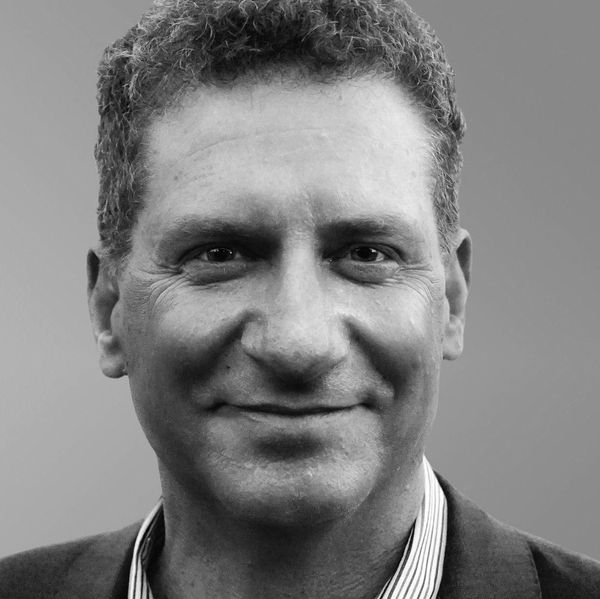Trending Now
We have updated our Privacy Policy and Terms of Use for Eurasia Group and its affiliates, including GZERO Media, to clarify the types of data we collect, how we collect it, how we use data and with whom we share data. By using our website you consent to our Terms and Conditions and Privacy Policy, including the transfer of your personal data to the United States from your country of residence, and our use of cookies described in our Cookie Policy.
{{ subpage.title }}
U.S. President Donald Trump salutes as he attends the annual White House Easter Egg Roll, in Washington, D.C., U.S., on April 21, 2025.
HARD NUMBERS: Trump rolls real eggs, UAE seeks AI’s help, White House nixes safety jobs, South China Sea gets battle-tested, Gold rush, Senior US official robbed
30,000: Rising egg prices don’t seem to have hit the White House, as nearly 30,000 real eggs adorned the White House lawn Monday morning for the 147th annual Easter egg roll. Donald Trump paid tribute to Pope Francis, defended embattled US Defense Secretary Pete Hegseth, and shared photos with the Easter bunny.
1: Hey ChatGPT, can you propose some new legislation for the United Arab Emirates? Yes, the Emirati nation plans to become the first country to harness the power of artificial intelligence to propose new legislation.
875: Out of the roughly 1,000 National Institute for Occupational Safety and Health jobs, the Trump administration has cut 875 of them as part of its broader effort to slash the number of federal employees. This move could especially harm former coal miners – who often suffer from lung disease – as NIOSH has helped them find work outside the mines.
14,000: More than 14,000 American and Filipino soldiers – 9,000 from the US, 5,000 from the Philippines – are participating in a “full battle test” this year, amid mounting tensions in the South China Sea. The coordinated drill will also feature soldiers from Australia, Canada, France, Japan, and the United Kingdom. The exercise, which started on Monday, will run for three weeks.
$3,400: An age-gold problem: The price of gold surpassed $3,400 on Monday amid fears over the future of the global economy and concerns for the Federal Reserve’s independence. A year ago today, the price of gold was at $2,384.
$3,000: A thief swiped US Homeland Security Secretary Kristi Noem’s bag while she was having dinner in Washington, DC, on Sunday night, taking her passport, makeup bag, checkbook, and $3,000 in cash. Police officers have not yet caught the thief, believed to be a white male.A 'coal is dead' placard is seen during the demonstration. Activists from Friends Of The Earth and other environmental groups gathered outside the Royal Courts of Justice as the legal challenge to the Whitehaven coal mine in Cumbria begins.
Hard Numbers: UK buries coal, Austria’s far right surges, Le Pen faces trial, UN extends but doesn’t expand Haiti mission, Russia spends more on guns (less on butter)
142: After 142 years, the UK government closed the country’s last coal-fired power plant on Monday night. Coal power was a critical factor in the British-born Industrial Revolution of the 18th century, but it wasn’t until 1882 that the British opened the first public coal power plant. The closure is part of the government’s plan to generate 100% of Great Britain’s energy from renewable sources by 2030. Our favorite British coal story? How coal pollution changed the color of the Peppered Moths of Manchester.
29.2: Austria’s Freedom Party became the first far-right party to win an election in the country since World War II, after taking 29.2% of the vote in Sunday’s election by appealing to Austrians worried about immigration, inflation, and the Ukraine war. But it’s a familiar story in Europe these days: A far-right party takes a plurality of the vote, only to find that it lacks an obvious coalition partner to form a government. The incumbent Austrian People’s Party has said it will only work with the Freedom Party if party boss Herbert Kickl renounces any cabinet position. That’s a tough sell – Kickl says he wants to be chancellor.
9: Meanwhile, elsewhere in European right-wing news, Marine Le Pen, the former leader and top candidate of France’s National Rally party, began a nine-week trial in which she and two dozen other party officials are accused of misusing EU funds by using them to pay party staff for political work. Le Pen says the payments were legitimate. If convicted, she faces up to 10 years in prison, fines of several million euros, and possibly being deemed ineligible to run for office. She is considered a top contender in the 2027 presidential election.
1: The UN Security council agreed unanimously on Monday to authorize the UN-backed security force in Haiti for one more year. But a US proposal to make the mission – currently a Kenya-led volunteer force – into a formal UN peacekeeping operation was blocked by Russia and China, which said the current force needs more time to find its footing. Haiti, for its part, has called for a peacekeeping operation as the Kenyan-led force struggles to subdue the powerful gangs that have taken control over vast swathes of the capital.
25: Russia will boost defense spending by 25% next year, as Vladimir Putin doubles down both on his invasion of Ukraine and on the deeper militarization of the economy at home. Social spending, meanwhile, is set to fall by nearly 20%. Heavy spending on defense has helped to insulate Russia’s economy from the effects of Western sanctions, with GDP growing 3.6% last year and forecasters predicting a similar outcome this year. How secure is Putin? Read our recent piece on the endless ends of the Russian president.The Graphic Truth: Thirsty for Russian energy
Much of the world has long relied on Russian energy to power their economies. That makes it very hard for them to punish the Kremlin for invading Ukraine by ditching Russia's plentiful oil, natural gas, and coal in the near term. So, who's most dependent on Russian fossil fuels? We look at a select group of OECD economies.
Episode 6: Common prosperity, coal, and competitiveness: The US and China (part II)
Listen: The relationship between the US and China is rapidly evolving. Economic and political decisions made today will impact power dynamics in both the near and long term. We'll examine the Chinese government's plans to shape industries, continue its domestic growth, and deliver on commitments made to reduce greenhouse gas emissions. Plus, we'll explain what those decisions may mean for Chinese and US investors in the near future.
The latest episode of Living Beyond Borders, a special podcast series from GZERO and Citi Private Bank, is the second in a two-part series on the relationship between the US and China. Moderated by Caitlin Dean, Head of the Geostrategy Practice at Eurasia Group, this episode features David Bailin, Chief Investment Officer and Global Head of Investments for Citi Global Wealth, Steven Lo, Co-Head of Citi Global Wealth for Asia Pacific, and Ian Bremmer, President at Eurasia Group and GZERO Media.

David Bailin
Chief Investment Officer and Global Head of Investments, Citi Global Wealth

Steven Lo
Co-head of Citi Global Wealth, Asia Pacific

Ian Bremmer
President, Eurasia Group and GZERO Media

Caitlin Dean
Practice Head, Geostrategy, Eurasia Group
Security personnel stand guard in front of the India Gate amid the heavy smog in New Delhi.
India’s push for climate justice
India, the world's third largest emitter of carbon dioxide, is one of the countries worst affected by climate change. But it takes issue with those now asking it to clean up its act. Why, the Indians ask, should we give up our right to get rich by burning fossil fuels like you developed economies have done for generations?
That's precisely the message that India's energy minister had for the US and other wealthy nations at a recent Zoom summit after they pressured Delhi to set a future deadline for net zero emissions. For India, he explained, such targets are "pie in the sky" aspirations that do little to address the climate crisis the country faces right now.
High stakes. The impacts of climate change will be severe for India. Parts of the country are set to become unbearably hot in the coming years. Torrential monsoon rains are becoming more frequent and unpredictable, as are droughts, which will hinder the agriculture's sector ability to feed 1.4 billion people and employ nearly 60 percent of the labor force.
Melting glaciers may alter the course of the Indus, Ganges, and Brahmaputra rivers, making it harder for farmers to irrigate crops. And tens of millions of Indians live in low-lying areas that could be underwater in a couple of decades.
Taking action. Faced with such grim prospects, India says it's doing its part to turn the tide. The country is one of the few currently on track to meet its emissions reduction target in the 2015 Paris Climate Accord, and is very close to achieving its objective of using 40 percent of renewable energy sources by the end of the decade.
Prime Minister Narendra Modi has been internally recognized for driving India to become a global climate champion. His government has spurred massive public and private investment in clean energy, especially solar, where India is now a major player due to ultra-low prices. But that's not the entire story.
Coal remains king. India still burns a lot of coal. In fact, coal powers about half of the country's electricity generation. As the Indian economy grows, so will demand for coal — and the air in megacities like Delhi and Mumbai will get even more toxic.
And it's not just coal. Eliminating dirty household fossil fuels for cooking, heating and lighting would fix India's air pollution problem without any changes to industrial or vehicle emissions. But an attempt by the government to force hundreds of millions of low-income Indians to use more expensive green alternatives would likely be met with the same fierce resistance that farmers have shown to Modi's new laws to make the agriculture sector more business-friendly.
To drastically cut emissions, India needs cash. Delhi believes that rich nations should spend less on going "net zero" themselves and more on helping developing countries realize their climate action plans with less stringent requirements. Why, the Indians ask again, should wealthy nations demand that we all go green but only we stay poor, when you still get most of the available climate finance money, and yet it is we who will suffer the most?
For India, it's high time to shift the burden of paying for climate action to those who caused Earth to warm in the first place. But will that argument convince rich countries to divert funds intended to reach their own targets so India won't have to choose between economic growth or saving the environment? We may find out in a couple of weeks at Joe Biden's Earth Day Summit.